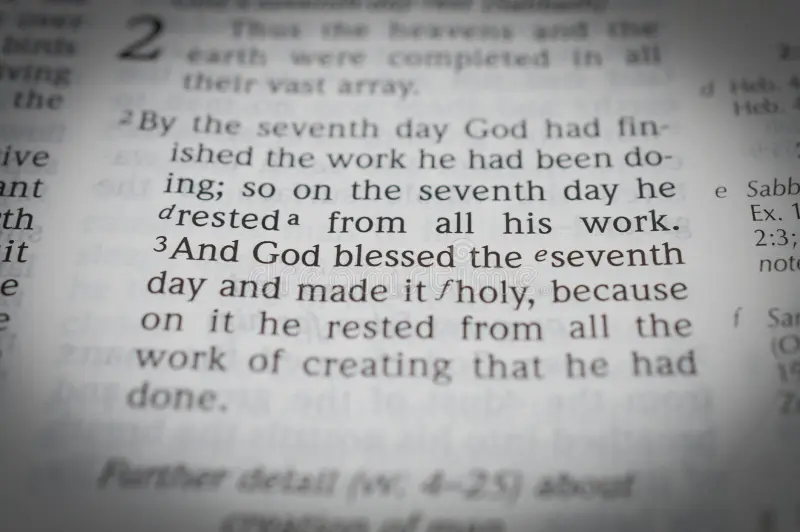Today is the Lord’s Day—a day set apart not by the whims of man or the tradition of culture, but by the ordinance of God Himself. For Reformed believers, the Sabbath is not a quaint relic of the Old Testament, nor a legalistic burden to be cast off in the name of Christian liberty. It is a divine gift—holy, wise, restorative, and deeply formative. It is the market day of the soul, the reset of the heart, the preview of eternal rest. And yet, in our modern age—and even in much of modern evangelicalism—this day is forgotten, flattened, or profaned.
But we remember.
We remember that the Sabbath is not merely a command; it is a covenant sign. It is woven into creation itself: “On the seventh day, God rested…” (Genesis 2:2–3). Before sin entered the world, before the tablets of stone were carved, before Israel was a nation, there was the Sabbath. God sanctified it. He blessed it. And in doing so, He established a rhythm of life for image-bearers—work six, rest one; labor faithfully, then cease joyfully; fill the earth, and then be refilled by heaven.
We remember that in Exodus 20, the Sabbath commandment was not merely a rule to obey, but a rhythm to delight in. “Remember the Sabbath day, to keep it holy.” Why? Because God rested. Because we are not machines. Because the world does not revolve around us. Because in stopping our work, we proclaim the sufficiency of God’s.
And then we remember the glorious shift in redemptive history—when the day moved from the seventh to the first, from creation to new creation, from the end of labor to the dawn of resurrection. The Lord’s Day. Sunday. The day the tomb was empty. The day the risen Christ appeared among His gathered people. The day the Church was born at Pentecost. The Christian Sabbath is not abolished—it is fulfilled, transformed, and exalted.
It remains a day of rest, but now it rests in resurrection.
For the Reformed, the Sabbath is not a shadow to be dismissed—it is the substance of eternal realities. As the Westminster Confession so beautifully puts it:
“This Sabbath is then kept holy unto the Lord when men… do not only observe a holy rest all the day from their own works… but also are taken up the whole time in the public and private exercises of His worship…”
— WCF 21.8
This is a day for worship—not a few obligatory minutes, but a full-hearted devotion. It is a day to gather with the saints, to sit under the preached Word, to partake in the sacraments, to pray with and for the body of Christ. It is a day to cease from our striving—not only vocationally, but emotionally and spiritually. We rest from our worries, we rest from our schedules, we rest from our performance-driven culture. J.C. Ryle wrote a wonderful defense of the keeping of the Sabbath.
But make no mistake: the Sabbath is not inactivity—it is intentionality. We do not honor the Lord’s Day by collapsing on the couch with our phones. We honor it by lifting our eyes. We honor it by catechizing our children. We honor it by meditating on the Word, reading good theology, singing the psalms, visiting the sick, praying for the lost, and reflecting on the mercies of God.
It is the one day that re-forms us, week after week.
And it is counter-cultural. In a world that celebrates busyness as a badge of honor, Sabbath-keeping is a form of resistance. In a region where the Lord’s Day is reduced to a rushed service before the real day begins—football, shopping, yard work—we quietly bear witness that Christ is Lord of the Sabbath and in the Sabbath.
We do not keep the Sabbath to be justified. We keep it because we have been justified.
The gospel gives rest—deep, soul-satisfying, guilt-lifting rest. The Christian Sabbath, rightly understood, becomes a foretaste of heaven. One day in seven.
A Word to the Weary
You may be in a context where Sabbath-keeping is strange—perhaps even scorned. You may find little support in your local church for Lord’s Day observance beyond Sunday morning attendance. You may even be accused of being legalistic simply for honoring this gift of grace.
Take heart, dear pilgrim. You are not alone. You are in the company of saints through the ages—Augustine, Calvin, Owen, the Westminster Divines, and a cloud of witnesses who understood that God commands what is good, and good is what He commands.
So as the sun rises over the Ozarks this Lord’s Day, I encourage you: stop. Worship. Rest. Delight. Let your soul breathe the rare air of the eternal.
Let the Sabbath reform you.
Soli Deo Gloria
A Sojourner in the Ozarks


Leave a Reply